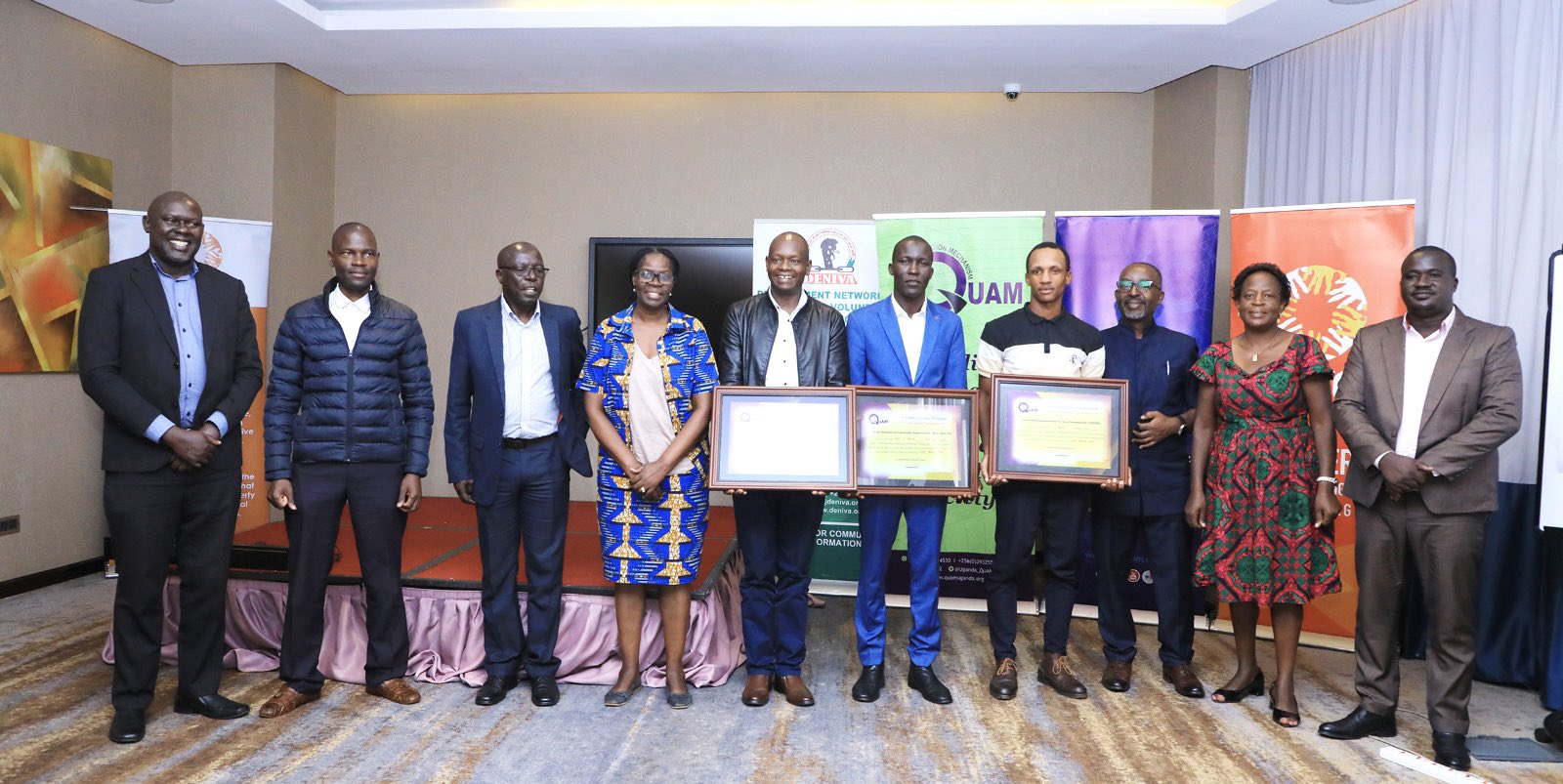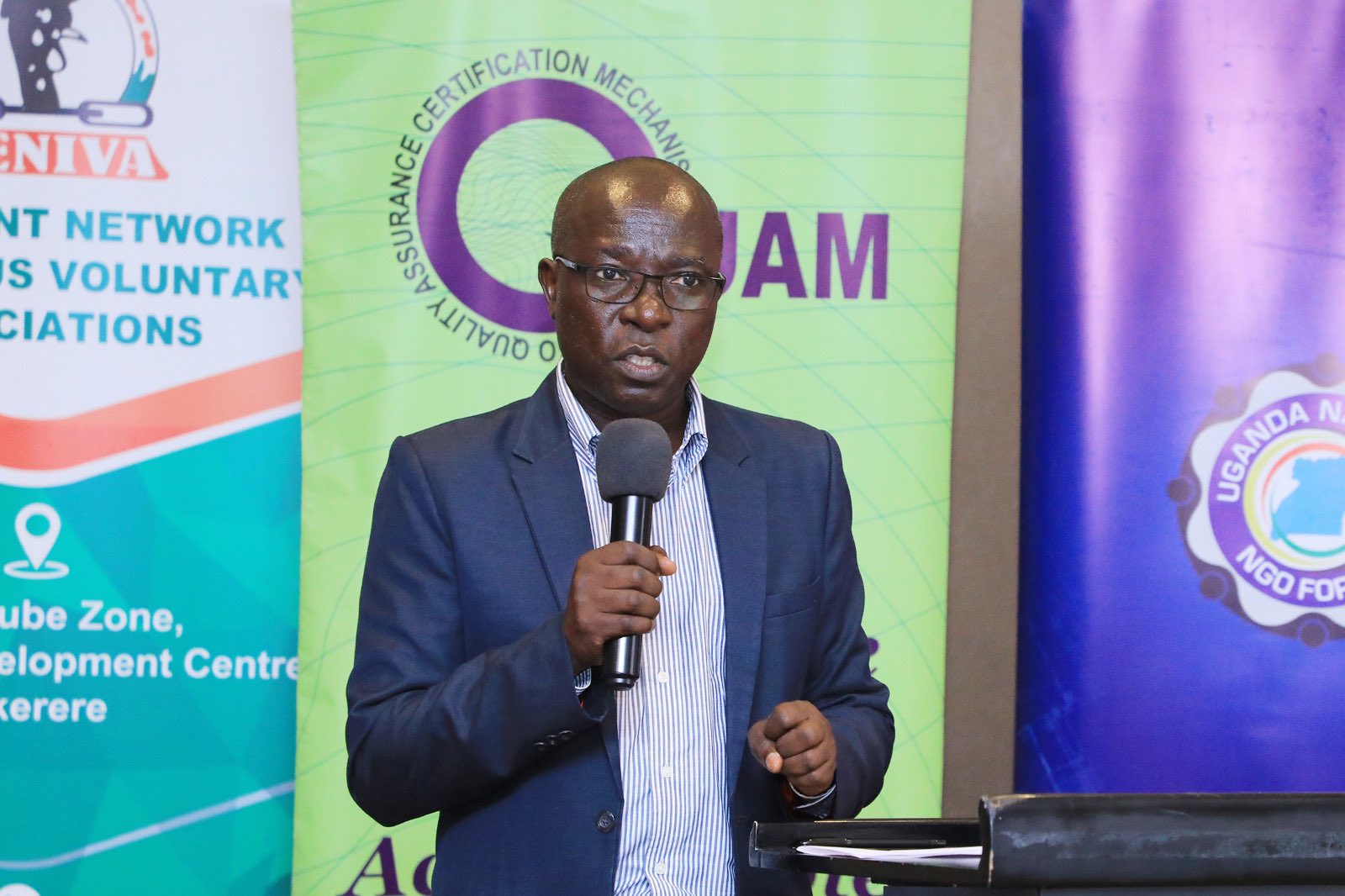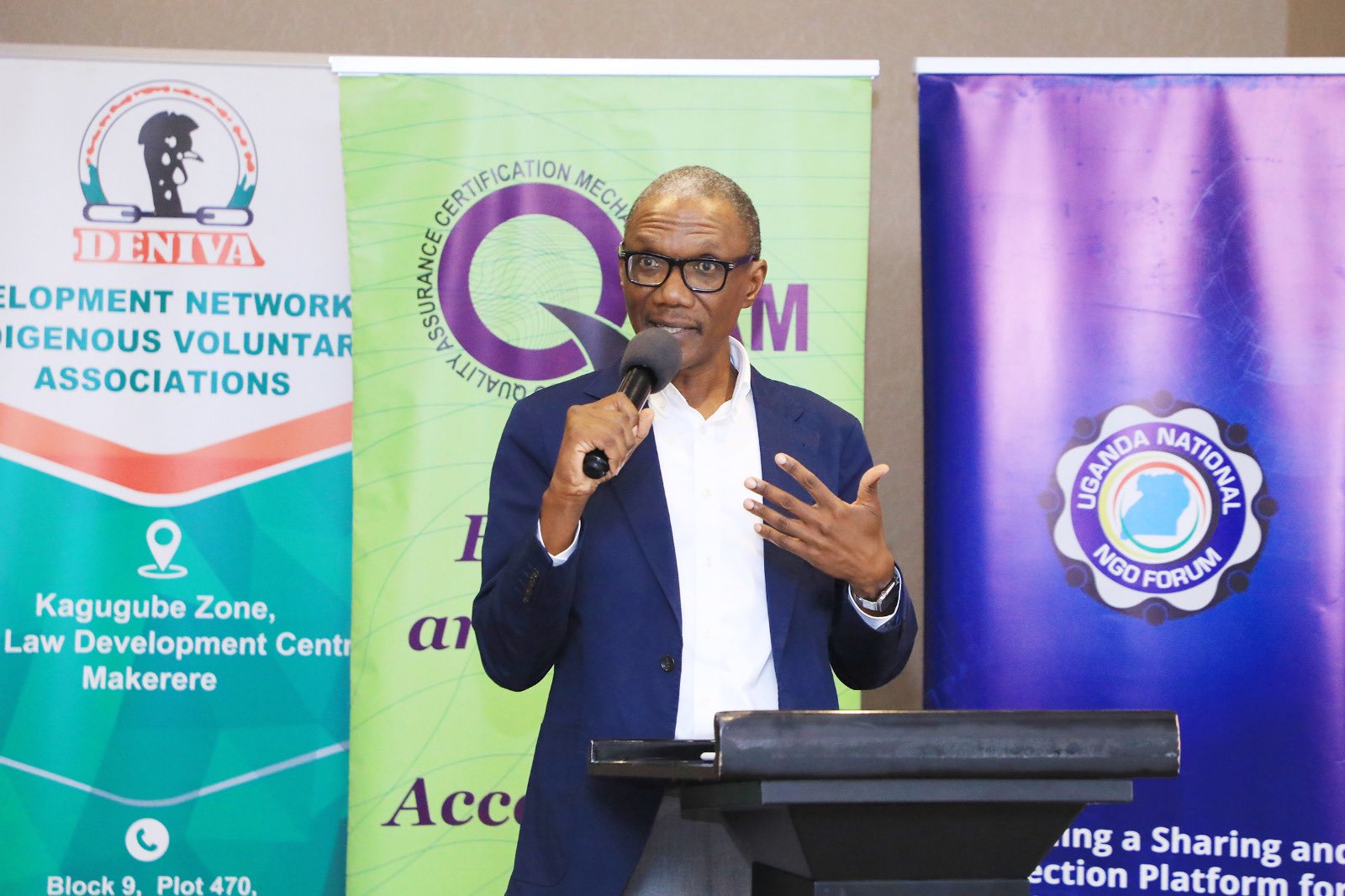Uganda’s Generational Challenge and Future Prospects
Our Country, Our Dignity, Our Future
Ladies and Gentlemen, last year when I stood here, Uganda was 50 years old. Today as I stand here we start the journey to the next 50 years. We are in our midlife as a country. We are therefore mature in mind, we have lost some of youthful shine, have gained our adult maturity and are starting to anticipate or old age challenges. But when we look at the citizen of Uganda today we still see several challenges. Let me invite you to reflect on 3 of these if only to ask the question – how do we reclaim our dignity and our country – which is also the theme of the 3rd edition of the CSO Fair.
Ladies and gentlemen – there are three challenges that we need to overcome. One – there is a worrying rundown of public services in Uganda, two – citizens ‘live are living on the edge’ and three – there is a stark absence and stark presence of government in Uganda. Let me elaborate the 3 challenges that we must overcome;
First is the collapse and run down public services. This is a big challenge because for a citizen that pays taxes and votes leaders into power – that citizen of Uganda is getting a raw deal when one looks at the quality of services. This is not just an NRM regime phenomenon, but it is one that comes from years of deceptive government investments. The colonialist worried more about investing for extraction and not development, the post colonial government spent all the time fighting to maintain their grip on power and not caring about the citizen. Today what we reap is a frightening collapse of public services that even the post-1986 government has failed to fix. Children continue to go to school and learn nothing and dropout of school. For instance we enroll 1.5 million children every year and we graduate 500,000 in primary seven after seven years. On million children fail to make it through seven years of schools. When we look at learning, our own research as civil society – under a citizen led assessment of learning code-named ‘Uwezo’ found that across the country eight out of ten children in primary three cannot do primary two work – meaning that they are below their levels of capacity for the grades. In the health sector, mothers continue to die on hospital floors with sixteen mothers dying every year from preventable complications. The poor roads continue to claim lives of numerous Ugandans with our statistics of carnage on roads rising dangerously.
This breakdown in public service delivery has meant that most services as now privatized – and citizens have to get them for a fee. Parents choose good education in private schools, citizens pay for most health care services, water is paid for, and those who can afford have to find a generator to substitute for electricity from the national grid. Everywhere we turn public services are under stress and for a price. This has left citizens that cannot afford in even more worse conditions. This is a development challenge that requires that we do everything it takes to fix the public service debacle. As we network, debate at the session over the next two days let us think of creative solutions to this challenge.
The second big challenge is the worrying reality that all Ugandans – from Leaders to Peasants are ‘living on the edge’. Thisischaracterized by all kinds of vulnerabilities. The leaders do not want term limits because there is no security outside leadership, the peasant desperately ekes a life out of a rugged rural life because that is the only way to escape that poverty. Peasants dig with a hoe hoping against hope that one day and maybe one day it will change their lives and they will have food security. They accept everything that the next politician around the corner can offer because as we say in Uganda – ‘that is where life has reached’. A 500 shilling coin is enough to buy a vote, a glass of waragi (local gin) on election night is enough to drown the sorrows of a man and guarantee an empty life every five years.
While – we – the middle class – look on. We see both sides of the road. We look at scenes like the comfortable political and new-age electronic thief in government on one side and the desperate urban youth riding a boda-boda (like there is no tomorrow) and the desperate citizen rural folk who look on mesmerized by the elite gluttony and incomprehensible contradictions that surround our lives. The middleclass continues to ‘live on the edge’ in prayer (for the demon-chasing Christians) and in perplexity for the half-hearted opposition politicians that pulls a few camera friendly stunts, to the savvy NGO worker who continues to see a project in every crisis and we construct our own small worlds filled with Facebook, Twitter, DSTV and enjoying short spurts of modernity facilitated by donors funds. This is a generational challenge. This is a challenge that has no policy prescription. This challenge does not get seen by foreigners and indeed does not get treated.
What this requires is creating both public trust and citizen security. We should trust that this country can deliver to all of us and that indeed there will be human security, social security and democratic ownership in this country for generations to come. I invite you to reflect on this issue.
The third big challenge is the paradox of a very present government and very absent government. Yes! On the one hand, we are over governed from Local Council 1 – Local Council 5, Presidential Advisors, an army of Ministers and several other visible troops ‘serving’ the state. Currently we have about 2 million elected leaders at different levels of governance. Yet on the other hand, if you are looking for a supportive government it is not there. Avoidable diseases are killing people – death from Malaria, Maternal Mortality, Infant Mortality, Marburg Disease, Ebola let alone the rise of HIV – are all things to worry about. In fact, whenever there is a fire the fire-brigade is never on time, we gave up drinking water from urban water taps long ago. Yet on the other hand, government is present. If one ‘walked to work’ there is a heavy presence of government, if one protested theft of public funds publically there is government to tell you to protest indoors, police will always find enough numbers to deploy for hotly contested elections but never enough numbers to stop violence against women or child sacrifice. So while government is very absent in the world of social services, government is very present in the world of politics and security services. While in some parts of Uganda you walk 5 kilometers to find a policeman, in Kampala you walk 5 meters to find one. This absence and presence of government is making many wonder, where in the world we are going. This is our generation challenge.
Ladies and Gentlemen, how did we get to this position? We now stand on very slippery grounds wondering how we got ourselves to this position – to a position where donors are cutting aid, civil servant becoming ‘thieving servants’ and a host of other challenges. What happened? Why is the Pearl of Africa going around full circle from a country we thought was a beacon of democracy to as country that can now be characterized as a failed state by a global report, a country where the arrests of parliamentarians, opposition politicians and human rights activists are becoming common place.
The answer seems to lie in the place that we as citizens can reclaim. What citizens, the allover world seem to be showing us, is that, if the world is going to change then people must become agents of their own development. This is easier said than done. But what it calls for is a radical shift in democratic thinking so that while we continue to celebrate and enjoy ‘representative democracy’, mediated through institutions like Parliaments and other forms of representative governance, time has come for us to move on to another type of democratic culture known as ‘participatory democracy’.
While participatory democracy may seem like a ‘wooly’ term – the crux of this kind of democracy is that it should be one where as citizens we shift from the mode of only voting, paying taxes and then hoping to hold our leaders to account. We should be moving to a democracy where citizens participate in civic life as co-creators of the country they want. The Government in this type of democracy should be acting not as a provider of development but as a catalyst that helps citizens achieve what they want. For participatory democracy to be effective it should be anchored on people power. In a participatory democracy, the state needs to enable the social and political construction of places and processes where differences engage rather than collide. Multi-stakeholder forums and mediated events should be the hallmark of this kind of democracy. Uganda has had many starts and stops, for example – the FM station bimeeza that were banned, the participatory local government planning that was a cornerstone of decentralization in the late 1990s. Other forms of citizen engagement like sector reviews and budget and public expenditure consultative forums are all important ingredients of participatory democracy. It is also important to note that participatory democracy is not a new idea but one that has to be resuscitated in this country because of the failures of our government to live up to the promises of democracy. The words of Mahatma Gandhi, “we must be the change we want to see in the world”, should become our buzzwords and indeed one that we should all embrace in Uganda today.
It is clear to all citizens today that faith in the state as an absolute – that assumes that the state is the source of all services, to all citizens, is certainly naïve. While the state serves people, it sometimes has to be compelled by the people it serves. It is important to underscore that while challenging the state is an important factor in participatory democracy, providing alternatives is equally important. Citizens have the responsibility to ensure that every challenge on the state is followed by a set of citizen-alternatives that do not relieve the state from its duties but indeed promote new forms of solution seeking.
We have decided as civil society that we shall pursue 12 citizen led campaigns over the next few years as a way of making sure that we change the way citizen engage with the state. The flagship campaign has kicked off and is code named the Black Monday Movement. The Black Monday Movement is a social movement that depends on health workers, teachers, clergy, homemakers, cab drivers, trade unionists, business owners, civil servants, boda-boda riders, hawkers, policemen and women, soldiers and several other people. In this Black Monday Movement we recognize the civic potential of all citizens of Uganda and are aware that our liberation as citizens is not only in one action but also in larger meaning and increased civic energies this work generates.
Let me also point out there options exist. There are many ways in which we can engage with these questions. Let me use 3 illustrative options that are available to us. One option is the Christmas tree option, the second is the Bulls-eye option and the jigsaw option. In the Christmas tree option we can decide to add more and more priorities on the already heavy laden tree of priorities in Uganda and hope that we shall achieve all of them. What we end up with is too many priorities that are messy and sometimes hard to comprehend. In the Bull’s eye option we can decide to go for few selected and targeted areas. Here the priority is on getting it right – for instance working to eliminate form of injustice or inequality like poverty and while staying silent about other forms of governance challenges. The last option is the jigsaw puzzle option. Here we concentrate on the inter-linkages between different sectors and dimensions of governance and development and try to establish how we can make them work together to create sustainable solutions. I want to invite you to consider the jigsaw option but also realize that it require more ingenuity and more tact.
Let me finally submit that what we make of the future is up to us. Yes, in Uganda we operate in the difficult terrain, with many temptations and obstacles on the road to transformation. We could complain about the bad governance, aid fatigue and many other things gone wrong. But we could also focus on the positive forces around us so that they can expand – we are alive, there is citizen energy and we are a mature nation. What is clear is that we can’t afford doomsday scenarios or self-fulfilling prophecies. The future needs a dose of optimism and creativity coupled with a can-do attitude to make things happen!
“A luta continua, vitória é certa”! – [translated] – The struggle continues, victory is certain!
Welcome to the 3rd Edition of the CSO Fair!
I thank you for listening!



